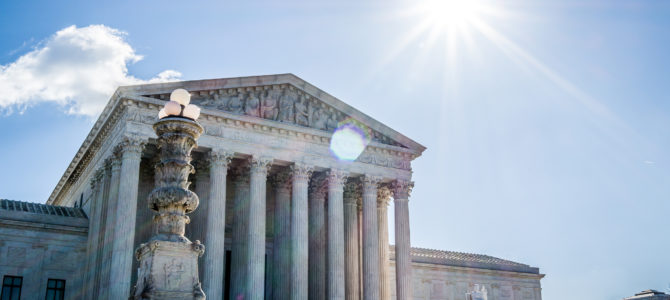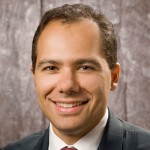
There were many ways to slice Masterpiece Cakeshop: the Supreme Court chose an exceedingly narrow cut that leaves all the big questions for another day. While it’s gratifying that, by a 7-2 vote, the court reversed Colorado’s persecution of Jack Phillips—the baker who had no problem serving gay people but wouldn’t bake a cake for a same-sex wedding—it did so only on the basis that the state commission that enforces antidiscrimination law displayed overt hostility to religion and treated secular refusals to bake religious messages differently. That’s an unusual circumstance, and one not typically in play in these wedding-vendor cases.
Indeed, the petition of a Washington florist who declined to provide arrangements for a longtime gay client’s wedding, Arlene’s Flowers v. Washington, is pending. With Monday’s narrow ruling, the justices can’t simply send that case back to the state court for reevaluation, because Monday’s rule of decision is fact-specific rather than announcing some clarifying principle.
Even if they do (we should learn by Monday), all they could ask of the Washington Supreme Court is to evaluate whether the state showed any anti-religious animus in its proceedings against Barronelle Stutzman. That perfunctory exercise would only buy a few months until a renewed petition arrived back at the marble palace.
That’s why this ruling is “narrow,” effectively a ticket good for this confection only. You’re simply not going to have too many cases where a government official will, in a public hearing, liken orthodox Christian (and Jewish and Muslim) beliefs about marriage to religious justifications for slavery and the Holocaust. (I’m not exaggerating; that’s why Justice Anthony Kennedy, who wrote the majority opinion, was so upset with Colorado’s lawyer during oral argument.) Cynics may even say the rule is now that legislators and bureaucrats may indeed punish those whose views they don’t like, but only if they hide their motives.
Still, there’s plenty of resonance with Kennedy’s majority opinion in Obergefell v, Hodges, the case that struck down laws that didn’t allow same-sex marriage. He wrote then that “[m]any who deem same-sex marriage to be wrong reach that conclusion based on decent and honorable religious or philosophical premises,” just as he wrote now that “gay persons and gay couples cannot be treated as social outcasts or as inferior in dignity and worth.”
Regardless, all this talk of “animus”—the flipside to Kennedy’s jurisprudence regarding the right to “dignity”—ignores the bigger questions that Masterpiece Cakeshop raised and aren’t going anywhere. Is a decision not to work a gay wedding no different than a decision not to serve gay people? Can an artistic or expressive professional be compelled to produce something for an event he disagrees with?
How do we decide what kinds of professions get that kind of First Amendment protection? Does it matter whether the objection is religious? Does it matter that, unlike the oft-invoked Jim Crow analogy, gay couples can generally get cakes, flowers, and other wedding products and services without having to travel too far?
All of these questions are left for some future case, when the swing vote may belong to someone other than Kennedy. In that way, this squib of a ruling—18 pages, most of which just recites factual and procedural background—underlines how the battle over the 81-year-old Kennedy’s successor will be, whenever that happens.
On those big issues, when the Supreme Court is forced to “go for it” rather than punting, we see a glimpse of the playbook in the food fight among the concurring and dissenting opinions. Justice Neil Gorsuch, joined by Justice Samuel Alito, emphasized how striking it was that the commission applied different standards and levels of definitional generality to achieve different legal results based on the viewpoint at issue. Justice Elena Kagan, joined by Justice Stephen Breyer, joined the majority but took issue with Gorsuch’s characterizations and argued that if one is in the business of making wedding cakes, one must make such cakes for all weddings.
Justice Clarence Thomas, joined by Gorsuch, went into the free-speech aspect that had dominated the briefing and commentary (including mine) before argument, showing how Phillips was engaged in expressive behavior whose constitutional protection can’t be blithely undermined. “The First Amendment prohibits Colorado from requiring Phillips to bear witness to these facts or to affirm a belief with which he disagrees,” Thomas concluded, citing the Hurley case, where the Supreme Court ruled that a parade can’t be forced to allow all comers to march.
Meanwhile, Justice Ruth Bader Ginsburg, joined by Justice Sonia Sotomayor, found even Kennedy’s milquetoast decision to be over-yolked, seeing the commissioners’ anti-religious statements as irrelevant to the resolution.
It’s a shame that, the superficial agreement in this narrow ruling notwithstanding, Masterpiece Cakeshop split the court—and the country—so sharply. After all, the most basic principle of a free society is that the government can’t willy-nilly force people to do things that violate their beliefs. Some may argue that these wedding-vendor cases present a conflict between religious freedom and gay rights, but that’s a “false choice,” as a recent president liked to say.
People have simply forgotten the distinction between state and private action. There’s no clash of individual rights except when the government itself declines to consistently protect everyone. County clerks must issue marriage licenses regardless of their personal beliefs, but bakers aren’t government agents and so should maintain freedom of conscience.
Kennedy could’ve forestalled some of this mischief by making clear in Obergefell that the Constitution protects not just the right to “advocate” and “teach” religion but also to “exercise” it, and that regardless people on either side of the debate shouldn’t be forced to convey messages they don’t like. But he didn’t, so it’s left to the better angels of our pluralistic nature to tolerate views and lifestyles we may not like. And to fight like hell for judges who agree with that sentiment.









